Search Results
Showing results 1 to 20 of 232

Hot Stuff!: Investigation #4
Learners test two jars containing soil, one covered and one open, for changes in temperature. After placing the jars in the Sun, learners discover that the covered jar cools down more slowly.

Dripping Wet or Dry as a Bone?
Learners investigate the concept of humidity by using a dry and wet sponge as a model. They determine a model for 100% humidity, a sponge saturated with water.
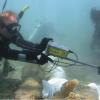
Excavating and Mapping Under Water
Source Institutions
In this archaeology activity, learners consider ways in which excavating an underwater site is different from excavating a terrestrial site.

Hot Stuff!: Investigation #1
Learners test two jars, one containing plain air and one containing carbon dioxide gas, to see their reactions to temperature changes.

Batter Up!
Source Institutions
This activity (on page 3 of the PDF under GPS: Baseball Activity) is a full inquiry investigation into how "bounciness" relates to the distance a ball will fly when hit off a batting tee.

From the Internet to Outer Space
Source Institutions
In this activity, learners will use Google Sky to observe features of the night sky and share their observations.

Public Key Encryption: Kid Krypto
Source Institutions
In this activity, learners conduct a simulation exercise related to public key encryption and try to intercept a message sent between two learners.
Mercury in the Environment
Source Institutions
In this environmental science lesson, learners will examine the dangers of mercury and how humans contribute to growing mercury emissions on Earth.

Battleships: Searching Algorithms
Source Institutions
This activity explores the main algorithms that are used as the basis for searching on computers, using different variations on the game of battleships.

Best Bubbles
Source Institutions
In this activity, learners experiment with creating various types of bubble solutions and testing which ingredients form longer-lasting bubbles.

Hull Engineering
Source Institutions
In this activity, learners explore how the hull shape impacts a ship's performance and stability.
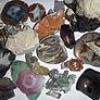
Mineral Scavenger Hunt
Source Institutions
In this activity, learners participate in a scavenger hunt, searching for and recognizing minerals and products that contain minerals.

Don't Crack Humpty
Source Institutions
Groups of learners are provided with a generic car base and an egg. Their mission: design a device/enclosure to protect the egg on or in the car as it rolls down a ramp with increasing slopes.

Water Clean-up
Source Institutions
This is an activity (located on page 3 of the PDF under Water Clean-up Activity) about the use of reduction agents to decontaminate ground water.

Cookie Mining
Source Institutions
In this activity, learners explore the economics of coal mining as you they use fake money to purchase mining tools, attempt to carefully mine their cookies, sell their chocolate chip ore, and try to
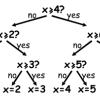
Twenty Guesses: Information Theory
Source Institutions
This activity introduces the idea that computer scientists measure information by how "surprising" a message is.

Ball Bounce Experiment
Source Institutions
In this activity, learners investigate the properties of different types of balls.
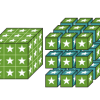
Surface Area and Soda Geysers
Source Institutions
This is an activity (located on page 4 of the PDF under Surface Area Activity) about surface area and reactivity.

Plugged in to CO2
Source Institutions
In this activity, learners investigate various appliances and electronics, discovering how much energy each uses and how much carbon dioxide (CO2) is released to produce that energy.
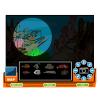
Underwater ROV
Source Institutions
In this online Flash game, learners will explore a coral reef using an underwater remotely operated vehicle (ROV).
